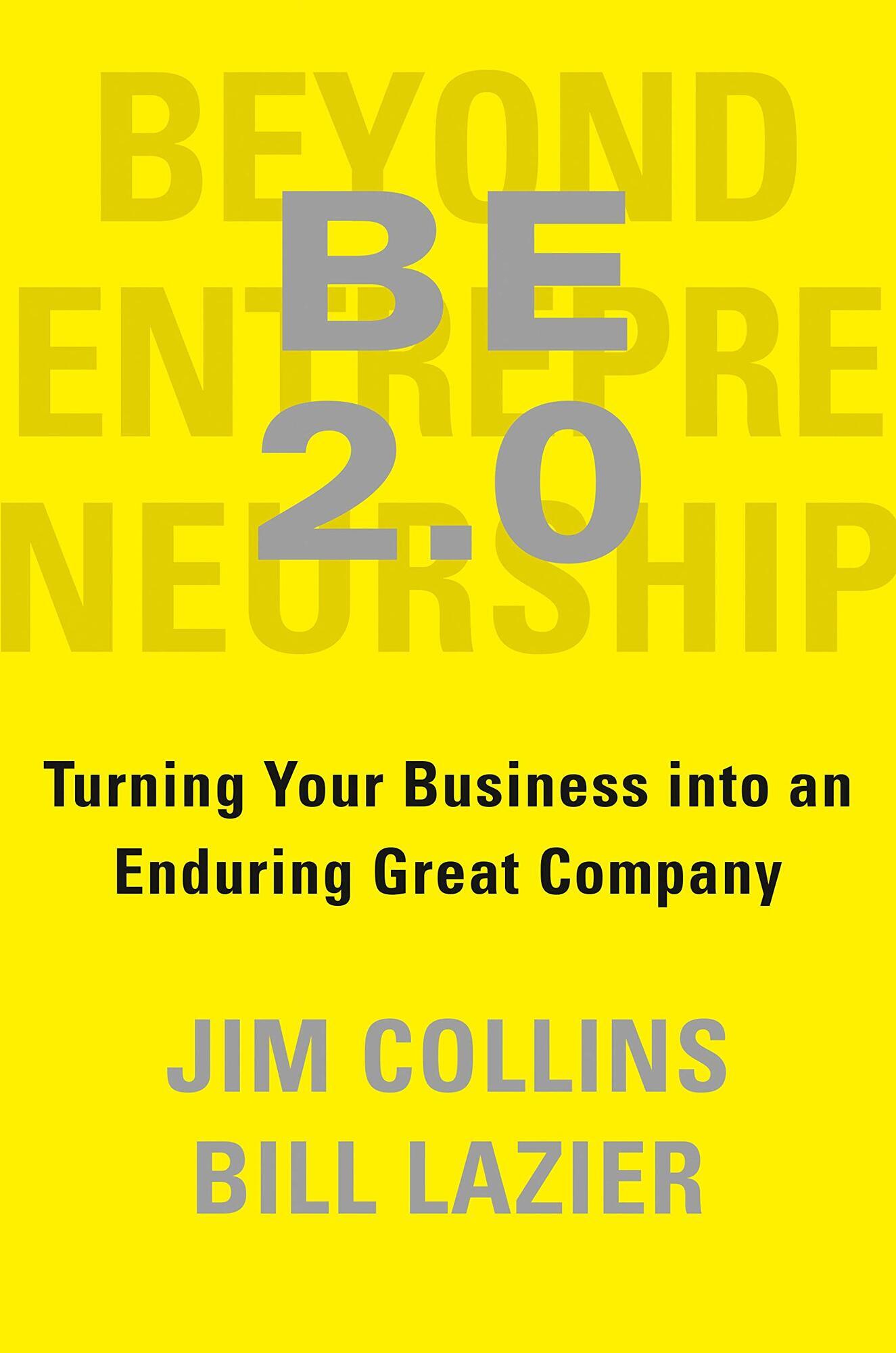 This is the second of a series of five blog posts based on Jim Collins & Bill Lazier, BE 2.0: Turning Your Business into an Enduring Great Company (New York, NY: Portfolio / Penguin, 2020). Bill Lazier and Jim Collins co-authored Beyond Entrepreneurship in 1992. Collins has released an expanded second version under a slightly modified name.
This is the second of a series of five blog posts based on Jim Collins & Bill Lazier, BE 2.0: Turning Your Business into an Enduring Great Company (New York, NY: Portfolio / Penguin, 2020). Bill Lazier and Jim Collins co-authored Beyond Entrepreneurship in 1992. Collins has released an expanded second version under a slightly modified name.
Jim Collins explains the meaning of life.
Really.
Why is he talking about the meaning of life? That’s a very good question. I asked myself that, too. Most management authors in today’s environment touch upon the meaning of work, which ties into meaning in life, as this is accepted territory. The understanding is that people need to see work as something meaningful to their lives so that when they do well, they will achieve meaning.
Of course, this basic equation makes many faulty assumptions. One is that employees and leaders within a company have no prior system for making sense of life and work or, if they do, it is not worth acknowledging or referencing. This is a mistake. In fact, for many people, their sense of meaning is based on previously determined and different values. They don’t look to work to provide their meaning in life. Or, they may view the pursuit of meaning as a private sphere and don’t want their employer invading their personal space.
Collins explains his view that “We live in a world rich in success but impoverished in meaning. A life of relentless work without meaning is brutal and dark…But we can move closer to it by building a culture where people depend on people. And in so doing, you will give people something of immeasurable value—work that matters. And that is truly great.” [37] Interesting, but not true, and it requires a lot of unpacking.
The world is not “impoverished in meaning.” Statistically, it’s not true. Rodney Stark, for example, has demonstrated his thoroughly in The Triumph of Faith: Why the World is More Religious Than Ever (2015). If we make the simple assumption that various belief systems, right down to manifestations of astrology and witchcraft, are ways to make sense of life then there is no impoverishment of meaning. The world is arguably more spiritual, though less religious than ever.
A life of relentless work, which is not defined, seems bleak and Collins refers to it as “brutal and dark.” He is unwittingly referencing Thomas Hobbes or doing so without attribution that life is “nasty, brutish and short.” There might even be a touch of the “chaos” of Jordan B. Peterson. The antidote: people depend upon people and work that matters. That sounds a bit vague. Collins does, however, keep coming back to the concept of meaning at various places throughout the book.
He does so when he poses the question of how to become a top leader? “What cause will infuse your life with meaning? It might be a grand, highly visible cause or a more private, less-visible cause; what matters is that you lead in service to that cause, rather than in service to yourself.” [50] It is interesting that he states his case, without any reference to context, when it has been uttered by meaning-focused leaders going back thousands of years. This is also a well-accepted psychological fact. The psychologist John Schumaker concluded his book entitled In Search of Happiness by noting that true happiness consists of serving others and being involved in a cause that is bigger than yourself.
In short, Collins’ remarks related to the meaning of life are typical of current management thinking—normally he is above and apart from the crowd. In this instance, he’s not. It’s a classic case of guru overreach. On the search for meaning in life, keep looking.

